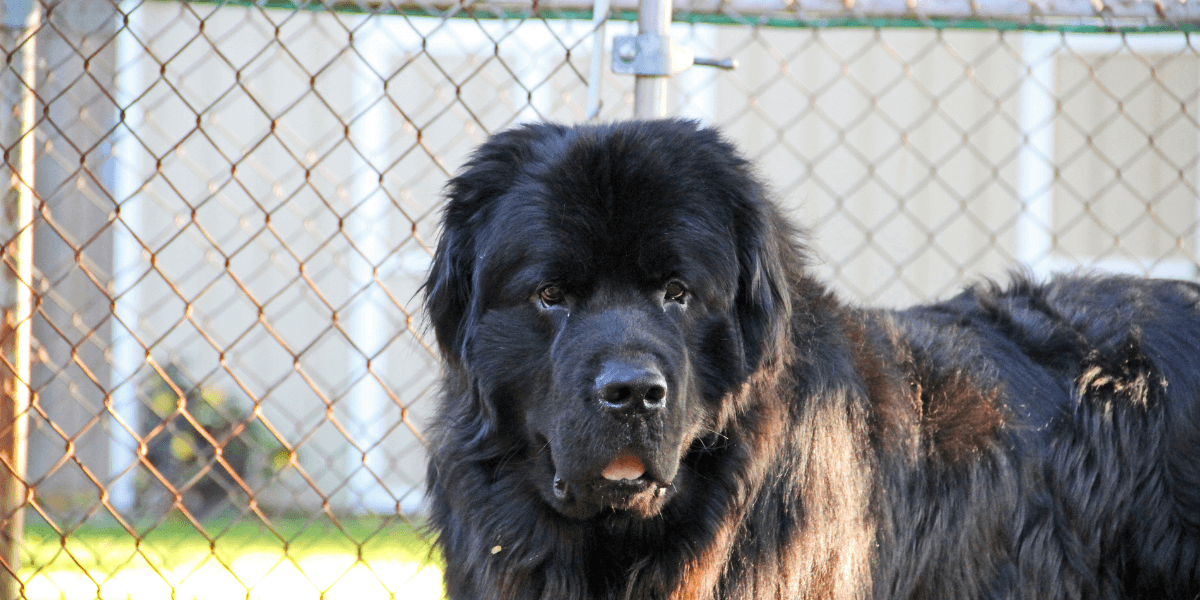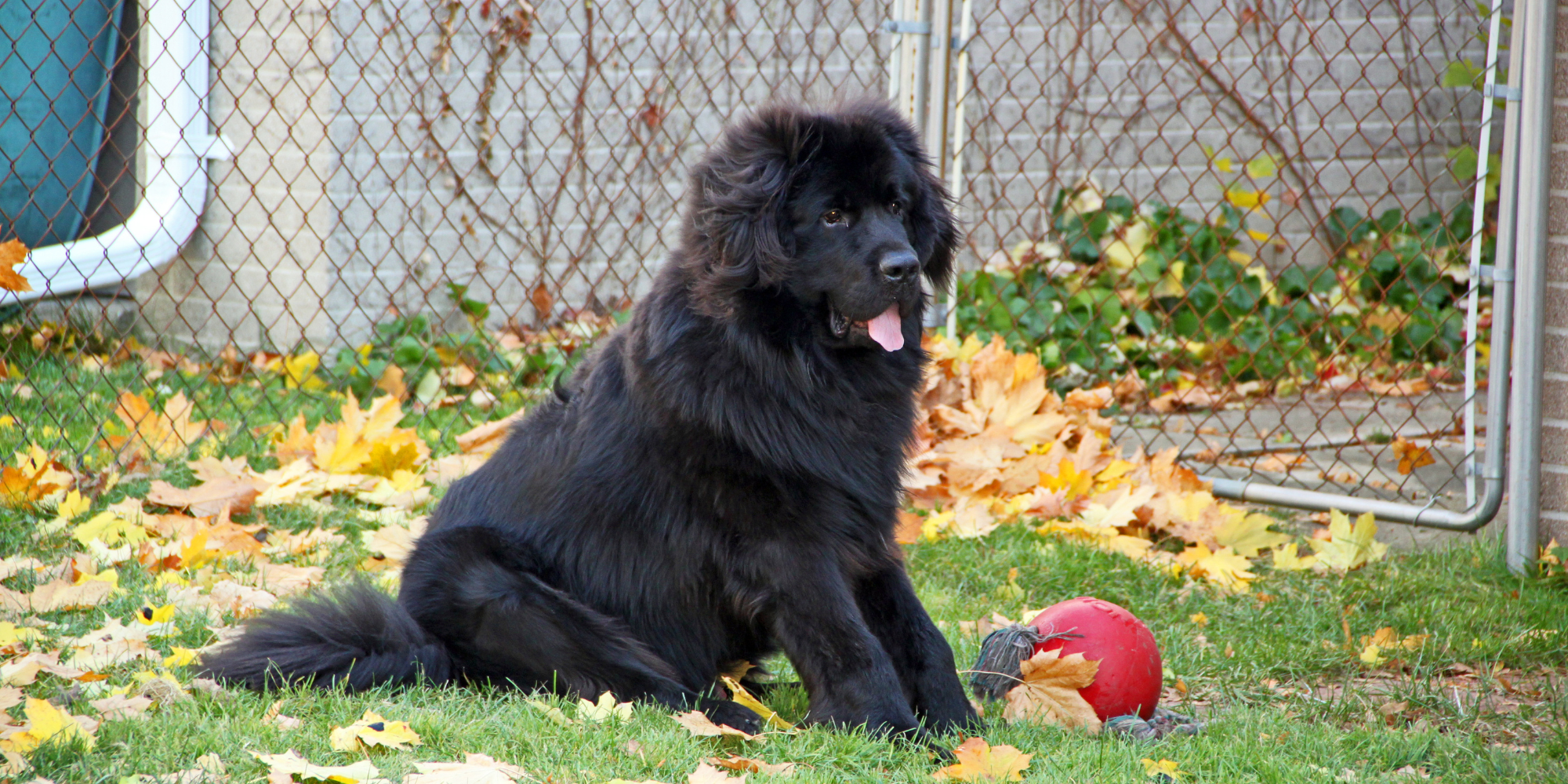Introduction
The ideal diet for Newfoundlands ensures balanced growth and lifelong health
- Understanding their nutritional needs helps prevent common breed-specific health issues
- High-quality protein and fat are essential for maintaining their muscular build
- Large breeds like Newfoundlands need controlled calcium levels for joint support
- Tailoring portion sizes prevents obesity while meeting daily nutritional requirements
- Consider life stages—puppy, adult, senior—when selecting food types and quantities
- Avoid foods with fillers and artificial additives that can lead to digestive issues
- Regular vet consultations help fine-tune the diet for optimal health outcomes
1. Understanding Newfoundland Nutritional Needs

Newfoundlands have different caloric and nutritional requirements than smaller breeds
Given their size and activity levels, their diet should be rich in high-quality proteins
Here’s a quick overview:
- Protein: Aim for dog food with a protein content of at least 22%
- Fats: Support energy levels and coat health, Look for foods with at least 8% fat content
- Carbohydrates: Provide energy but should be balanced to avoid excessive weight gain
- Calcium and Phosphorus: Important for bone health, especially in growing puppies
- Vitamins and Minerals: Ensure that the food contains adequate vitamins (A, D, E) and minerals (zinc, selenium)
2. Best Food Choices for Newfoundlands

Choosing the right food for your Newfoundland is crucial
Whether you opt for kibble, wet food, or a raw diet, quality is paramount
Here are some recommended options:
- High-Quality Kibble: Look for kibble that lists meat as the first ingredient
- Wet Food: Can be mixed with kibble or given as a standalone meal
- Raw Diet: Some owners prefer a raw diet, which consists of uncooked meat, bones, and organs
Tip:
- Avoid dog foods with artificial preservatives, excessive fillers, or by-products
- Always check the ingredient list to prioritize natural, wholesome ingredients
3. Feeding Schedule and Portion Control

Portion control is vital for Newfoundlands, as they are prone to obesity
Overfeeding can strain their joints and lead to long-term health issues
Here’s a recommended feeding schedule:
- Puppies: Feed 3-4 times daily, Puppies need more frequent meals for growth and energy
- Adults: Feed twice daily. Stick to consistent meal times
- Seniors: Depending on activity levels, some seniors may benefit from smaller, more frequent meals
Portion Tips:
- Follow the feeding guidelines on your chosen dog food package
- Regularly weigh your Newfoundland and consult your vet
4. Managing Common Health Issues Through Diet

Newfoundlands are susceptible to certain health problems.
Many of these can be managed or mitigated through diet:
- Hip and Elbow Dysplasia: A diet rich in omega-3 fatty acids can reduce inflammation and support joint health.
- Obesity: Foods labeled “weight management” are a good choice
- Bloat (Gastric Dilatation-Volvulus): Feed smaller meals more frequently and avoid vigorous exercise immediately after eating
5. Essential Supplements for Newfoundlands

While a balanced diet is foundational, supplements can be beneficial.
Especially for aging Newfoundlands or those with specific health concerns:
- Glucosamine and Chondroitin: Support joint health and mobility
- Fish Oil: Enhances coat health and reduces inflammation
- Probiotics: Aid digestion and improve gut health
- Multivitamins: Ensure that any gaps in the diet are filled
Before introducing supplements, consult your vet
To determine the right dosage and ensure they’re appropriate for your dog’s needs.
6. Homemade vs. Commercial Dog Food

Some owners prefer to prepare homemade meals, ensuring complete control over ingredients
It’s important to ensure meals are nutritionally balanced:
Benefits of Homemade Dog Food:
- Complete control over ingredient quality
- Can be tailored to specific dietary needs or preferences
Challenges:
- Requires careful planning to avoid nutrient deficiencies
- Can be time-consuming and expensive
Best Practices:
- Work with a vet or pet nutritionist to create a balanced recipe plan
- Incorporate lean meats, vegetables, and a carbohydrate source like rice or sweet potatoe
If you prefer the convenience of commercial food
Complete nutrition that meets all of your dog’s needs
7. Common Feeding Mistakes to Avoid

Some common mistakes can negatively impact your Newfoundland’s health:
- Overfeeding Treats: Limit treats to 10% of your dog’s daily caloric intake
- Inconsistent Feeding Schedules: Stick to regular meal times to maintain healthy digestion and energy levels
- Ignoring Food Allergies: Newfoundlands can be sensitive to certain ingredients like wheat, soy, or chicken
Explore how the dietary needs of Newfoundlands compare to French Bulldogs in our detailed nutrition guide.
FAQs
1. What should I feed my Newfoundland?
- High-quality kibble, rich in protein, with healthy fats
2. How often should Newfoundlands eat?
- 2-3 balanced meals daily are ideal for Newfoundlands
3. What foods should I avoid for Newfoundlands?
- Avoid foods with fillers, grains, and artificial additives
4. Are supplements needed in the Diet for Newfoundlands?
- Fish oil and joint supplements can support their health
5. How much water should a Newfoundland drink?
- Provide constant access to fresh water; they need plenty
6. Can Newfoundlands eat raw food?
- Yes, but ensure it's balanced and vet-approved
7. Should I choose grain-free food for Newfoundlands?
- Grain-free is often recommended, but consult your vet first
Conclusion
- A balanced diet for Newfoundlands is key to their health and longevity
- Prioritize high-quality proteins, fats, and controlled calcium levels for optimal care
- Adjust feeding plans as your Newfoundland transitions through different life stages
- Regular vet check-ups ensure your dog’s nutritional needs are consistently met
- Avoid low-quality foods with fillers that can cause long-term health issues
- Tailor portion sizes to prevent obesity and maintain healthy weight
- Stay informed on best practices for feeding large breeds like Newfoundlands
- Proper nutrition helps your Newfoundland thrive and live a long, happy life
Did you find these tips helpful?
Share this post with other Newfoundland owners!
Leave a comment below with your own feeding tips and experiences!
References
For more information on the Best Diet for Newfoundlands, check:
- Diet for Newfoundlands Dog
- Keeping your Newfoundland Healthy – A Look at Diet & Condition
- The Best Diet for Newfoundlands
- Common Causes of Hip and Joint Pain in Dogs?
- Dog Breeds Most Prone to Hip Dysplasia
Thank you!



